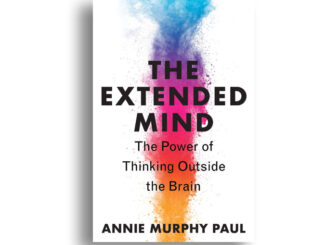By Michael Mermelstein, Executive VP/Partner, Nichols Research, Fremont, California, michael@nicholsresearch.com
Generations and Role Models
Hello Members,
As we learned at the QRCA annual conference in Charlotte this past March, there are many extraordinary people in market research, particularly qualitative research, who have taken advantage of circumstances and opportunities—unknown to them at the time—to create a new industry. Sarah Schlesinger, Mimi Nichols, Marianne Schaffer, Ruth Nelson, Joan Shugoll, and many others created businesses in their living rooms and basements and created businesses where women led. Many of these women passed the business on to their children, and others who took on the challenges of growing these businesses to meet today’s industry needs. These women were role models to many in our profession.
The inevitable march of time, along with COVID-19, has taken from us some of these businesses and/or their founders. But they were, and continue to be, role models for many who knew them and followed in their footsteps.
A role model is someone whose behavior is in some ways imitated by others, primarily because role models have abilities. But it is their passion, values, and willingness to help others through coaching and mentoring that stands out. Though some are retired, today’s role models in market research include, but are certainly not limited to:
- Susan Abbott
- Robyn Allong
- Jim Bryson
- Merrill Dubrow
- Susan Fader
- Lynn Greenberg
- J.R. Harris
- Judy Langer
- Tom Rich
- Isaac Rogers
- Janet Standen
- Dona Vitale
- Jeff Walkowski
- Michele Zwillinger
We should all take advantage of learning from these role models because they do share so much of themselves, their knowledge, and even their connections. If you don’t know them but want to, do not hesitate to reach out to them. They love market research and are willing to provide guidance to those who ask.
QRCA has historically had an environment of openness and of sharing—in large part because the early practitioners found that helping each other was good for everyone. These role models helped establish QRCA’s culture of community. As this group retires, it is up to the rest of us to become role models for the next generation of up-and-coming qualitative researchers. While I believe QRCA will continue to provide excellent programming and content for its members, it is up to those of us who practice qualitative research to look for ways to mentor and connect newer researchers so they can continuously improve their skill sets while growing their careers. Let’s all pay it forward and show everyone a pathway to success.
Best regards,
Michael Mermelstein




